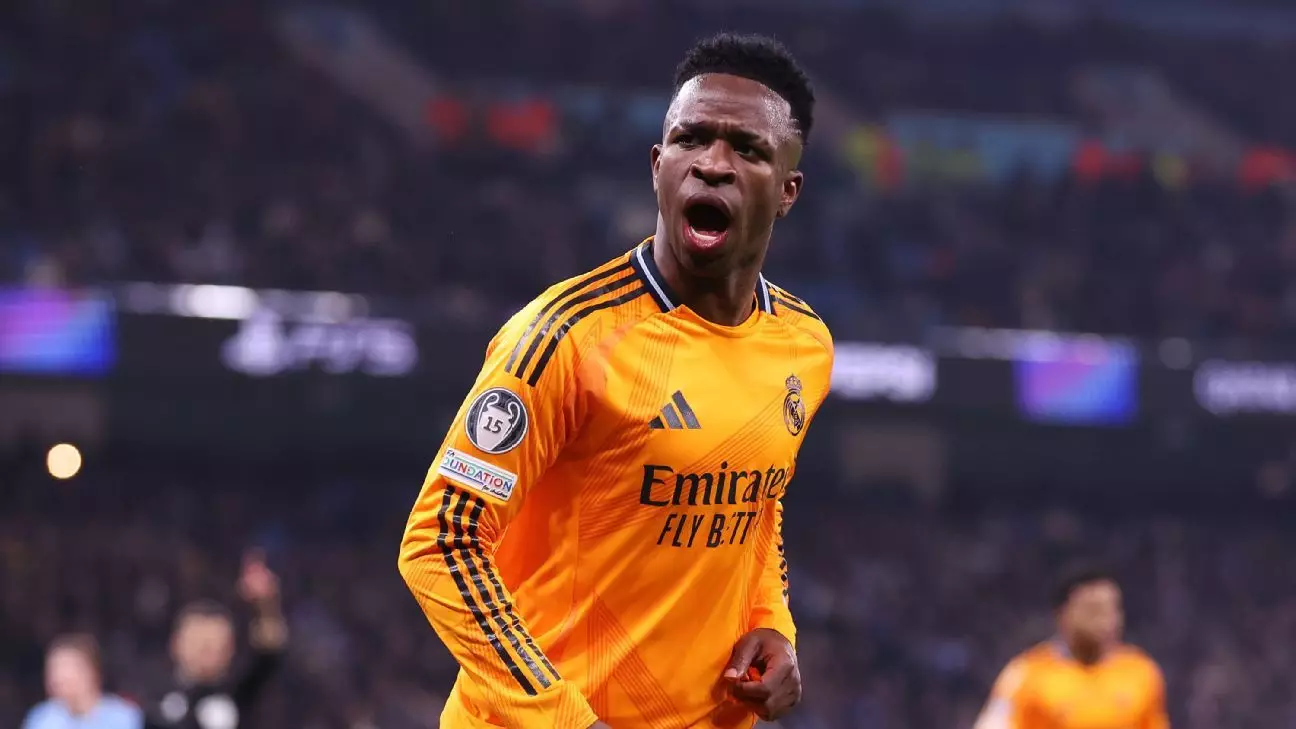Vinícius Júnior, the vibrant Brazilian forward for Real Madrid, has become a focal point not just for his dazzling performances, but also for the controversies swirling around him. Speaking candidly, Vinícius conceded that his behavior on the pitch is far from perfect, openly admitting, “I’m no saint.” This statement acknowledges the complexity of being a high-profile athlete under immense public scrutiny, yet it also touches on a deeper narrative about how referees and officials manage player conduct during heated encounters.
During a recent Champions League clash against Manchester City that ended in a thrilling 3-2 victory for Madrid, Vinícius’s frustrations boiled over. The match atmosphere was electrified, not only by the football but also by the taunts from certain City fans, particularly a banner that ridiculed his aspirations for the 2024 Ballon d’Or. Such derisive elements, combined with the palpable hostility of the match, underscore the challenges he faces as an opponent. Vinícius articulated a chronic frustration about how referees often neglect to penalize those who target him, stating, “When I get kicked, I get the yellow card.” This sentiment reflects a clear disconnect between his expectations of officiating and the reality during matches, raising pertinent questions about player safety and bias.
The broader context also highlights Real Madrid’s grievances with officiating this season. The club’s management has been vocal about perceived injustices, going as far as filing a formal complaint with the Spanish football federation. This institutional response may be a reflection of their ongoing dissatisfaction rather than an isolated incident related to Vinícius. Concerns about fair treatment within football are valid; however, they also encourage introspection within the team about how to mitigate disciplinary issues. With five yellow cards and one red in LaLiga, plus three more yellows in European matches, Vinícius not only faces external challenges but must also reckon with his disciplinary record.
Amid these challenges is the ever-present dialogue regarding Vinícius’s contract. Reports indicate that Real Madrid has initiated discussions concerning an extension, even though his current deal lasts until 2027. This proactive approach by the club does not only signify their commitment to retaining a key asset but also highlights the growing interest in his talents from international clubs, including those in Saudi Arabia. Yet, despite these developments, Vinícius himself seems somewhat detached from the immediate pressures of contract negotiations. “I don’t know anything, nobody has spoken to me,” he mentioned, underscoring that clarity is often lacking amidst professional dynamics. His desire to remain at Madrid stems from both the affection of the fans and the potential for legacy within a storied club.
Vinícius’s aspirations are intertwined with his career ambitions at Real Madrid. He expressed enthusiasm about the prospect of contract negotiations, stating, “It’s always very exciting to…open up conversations with Real Madrid.” This reflects a player intent on making a mark and contributing to the club’s storied history. The duality of his situation—struggling for protection on the field while also yearning for long-term stability—positions him at a critical juncture in his career. As he navigates the complexities of professionalism and personal ambition, it becomes clear that both his conduct and external perceptions will play integral roles in shaping his legacy in the football world.

